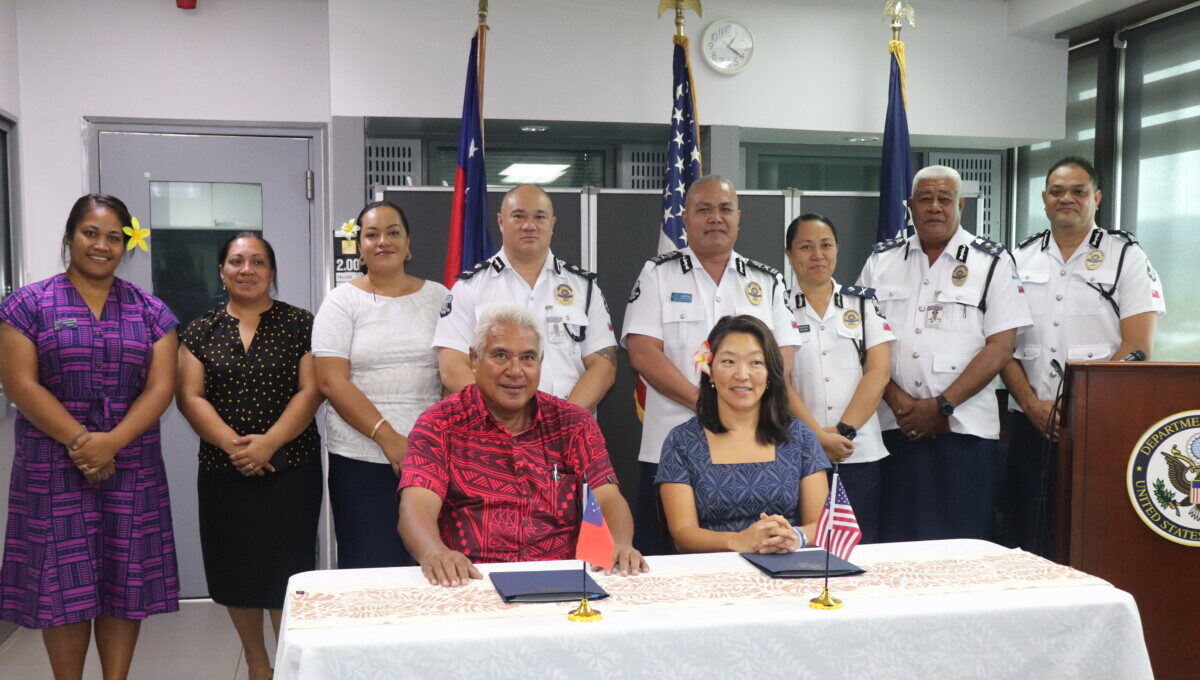In a landmark move to bolster maritime security and combat illicit activities in the Pacific, the Independent State of Samoa and the United States of America have signed an addendum to their existing 2012 Bilateral Agreement. This historic event took place at the US Embassy Apia, Samoa, on April 5, 2024.
The addendum aims to enhance operational cooperation between the U.S. Coast Guard and Samoa, facilitating joint efforts to suppress transnational maritime crimes. Under this agreement, the U.S. Coast Guard will extend its operability to support Samoa in deterring illegal fishing activities within Samoa’s Exclusive Economic Zone (EEZ).
Noriko Horiuchi, Charge d’Affaires at the U.S Embassy in Samoa, emphasized the commitment of both nations to safeguarding Samoa’s marine resources and promoting sustainable development. The enhanced maritime law enforcement agreement represents a significant step towards protecting marine ecosystems and ensuring the livelihoods they sustain.
Captain Tom D’Arcy, chief of response for U.S Coast Guard District Fourteen, highlighted the importance of maritime security in maintaining national sovereignty and regional stability. The agreement signifies the United States’ dedication to fostering a stable and prosperous Pacific region.
This development follows similar agreements signed with other Pacific nations, including the Federated States of Micronesia, Papua New Guinea, and the Republic of Palau. These partnerships demonstrate a collective commitment to safeguarding shared resources and building a secure and inclusive Oceania.
Through bilateral law enforcement agreements and community engagements, Samoa and the United States are working closely to address common maritime challenges and ensure the security of the Blue Pacific. This collaboration reflects a shared vision for a prosperous and law-abiding region.
Stay tuned for further updates as Samoa and the United States continue to strengthen their partnership in maritime law enforcement and security.

